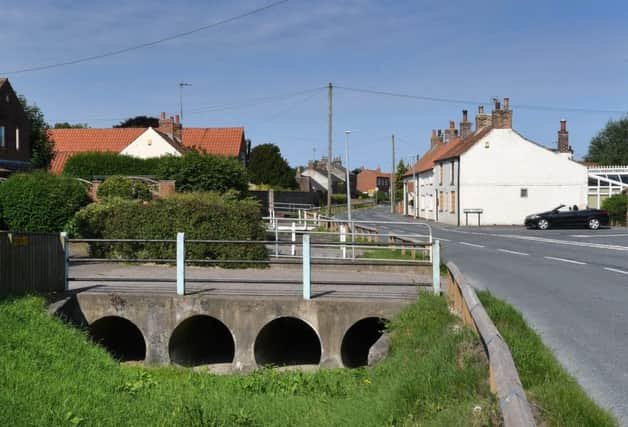Village Focus: Nice weather for ducks (and hedgehogs) at Burton Fleming


It is a long-standing but irregular tradition in Burton Fleming, governed by the weather and in particular by the Gypsey Race itself.
They had expected that come late April it would have dried up for the season. But it has been, as we all know, a wet few months.
Advertisement
Hide AdAdvertisement
Hide Ad“It looks very pretty at the moment,” said Keith Wells, who chairs the parish council. “But overall, I wouldn’t say most people considered it an asset to the village.”
Taking its name from the old English word Gypsia, meaning to suddenly spring into life, the Gypsey Race is the result of sudden heavy showers on the high Wolds running off the ground and joining together to form a fast flowing stream.
The water rises near the abandoned village of Wharram and runs on the surface before going underground. But when the clay can no longer contain it, it springs out.
Tomorrow’s duck race, starting at 11.30 is a benign use for it, with the £1-per-duck wagers going to support the local playing field, but five years ago it was the cause of the worst flooding the village had seen since 1963. Around 15 of Burton Fleming’s 363 properties were under water as the Gypsey Race burst its banks and a torrent up to 18in deep flowed through the main streets.
Advertisement
Hide AdAdvertisement
Hide AdThe clearance of obstructions from what is, in dry periods, a ditch has mitigated the risk of future floods, but, Coun Wells said, “it is ultimately something we have to live with”. Those whose houses are passed by the stream are charged with ensuring its free passage to the next property.
Happily, the talk now in Burton Fleming, an agricultural community that still supports seven working farms, has turned to the bucolic undertaking of caring for hedgehogs.
Last year, it made national headlines when it declared itself the first village in Britain dedicated to their wellbeing. With the help of an animal sanctuary in Lincolnshire, 100 were introduced to local gardens and “hedgehog stations” installed to monitor their progress. Little ladders were added to help them out of ponds and holes in fences made to speed their progress between gardens.
“We have seen definite signs that they are breeding,” said Ali Blyth, who this week cycled the length of Hadrian’s Wall to raise funds for hedgehog food.
Advertisement
Hide AdAdvertisement
Hide Ad“I looked after four for the winter and I’ve just brought them out of hibernation and released them into the wild. I called one Sid because he hissed all the time, but he was the friendliest of all and he’s now in a box in my garden.”